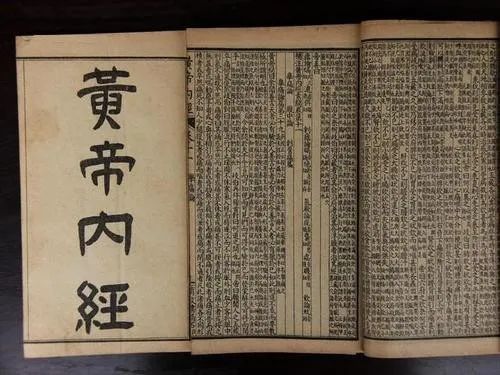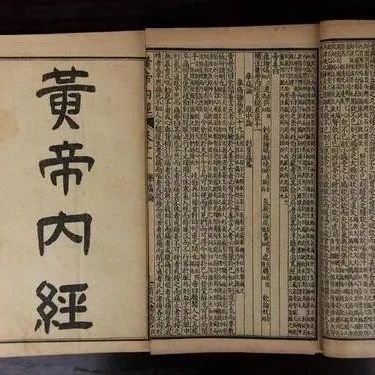The “Huangdi Neijing Health Preservation Methods for the Five Organs and Six Bowels” explains that the human body is a microcosm of the universe, where the five organs (wuzang) and six bowels (liufu) reflect larger issues when they encounter minor problems. The human body is a system that emphasizes balance and harmony, with each organ performing its own function while supporting and restraining one another. Therefore, in ancient Chinese medical texts, the five organs and six bowels are treasures of the human body and vital for health preservation; they determine lifespan, dictate health, and nourish vital energy (qi). The harmony and balance of the five organs and six bowels are essential for physical and mental well-being, achieving the goal of longevity.
The “Huangdi Neijing Health Preservation Methods for the Five Organs and Six Bowels” integrates the lifestyles and physical conditions of modern individuals, absorbing the essence of traditional Chinese health preservation, and draws from the millennia-old wisdom contained in the “Huangdi Neijing”. It approaches the actual conditions of modern bodies, reflecting on the modern living environment, and summarizes a series of effective health preservation methods based on the five organs and six bowels.

Introduction: Regulating the five organs and nourishing the six bowels, thus preventing the onset of diseases.
Chapter One: Health Preservation Begins with Nourishing the Five Organs and Six Bowels
Examining the connection between the five organs and six bowels through the Five Elements (Wuxing).
Qi, blood, essence, fluids, and spirit are all stored in the five organs and six bowels.
Yin-yang balance is the foundation of harmony among the five organs and six bowels.
The meridians (jingluo) are the supreme masters connecting the five organs and six bowels.
Nourishing the five organs and six bowels must align with seasonal changes.
The five colors and five flavors nourish the five organs, ensuring their proper function.
Emotions such as joy, anger, sorrow, and happiness affect the five organs and six bowels.
Chapter Two: The Heart is the “Ruler” of the Body; a Strong Heart Means Healthy Five Organs and Six Bowels
The heart is the master of the five organs and six bowels.
Beauty begins with nourishing the heart.
In summer, focus on heart nourishment while aligning with the six solar terms.
Gently tapping the heart protector meridian (xinbao jing) benefits the heart and strengthens the body.
Regulating emotions is essential to avoid harming the body.
Prioritize calming the heart before sleeping to ensure restful sleep.
Kidney deficiency should also be addressed by nourishing the heart.
Eating until 70% full at dinner is most beneficial for heart health.
Bitter foods are beneficial for heart nourishment.
Excessively salty or sweet foods are not good for the heart; maintain a balanced diet.
Chapter Three: The Lungs are the “Chancellor” of the Body; Nourishing the Lungs Brings Beauty and Health
When lung qi is damaged, numerous diseases arise.
Worry harms the lungs; the best way to nourish the lungs is to maintain a cheerful disposition.
Nourishing the lungs in autumn prevents them from wilting like flowers.
When breathing is obstructed, focus on synchronizing the heart and lungs.
When phlegm is excessive, consuming yam (shan yao), lily (bai he), and coix (yi yi ren) porridge nourishes the lungs and resolves phlegm.
Spicy foods should be consumed in moderation as they affect the lungs.
Massaging the lungs is effective; rubbing the nose promotes health.
The H1N1 virus is merely a pestilence; its cause is the invasion of wind-heat into the lungs.
Chapter Four: The Liver is the “General” of the Body; a Healthy Liver Means a Strong Body
The liver governs the eyes; to have bright and beautiful eyes, do not forget to nourish the liver.
Spring and autumn are crucial for liver nourishment, with dietary supplements as a priority.
As the saying goes: Do not get angry, as anger harms the liver!
Regularly massaging the “di jin” point is beneficial for the liver.
New insights into depression: extreme liver qi deficiency can lead to depression.
For plum pit qi (mei he qi), the treatment principle is to soothe the liver and relieve depression.
Stimulating the liver and gallbladder meridians not only benefits the liver but also aids in weight loss.
Chapter Five: The Spleen is the “Mediator” of the Organs; a Healthy Spleen Ensures Body Safety
The spleen is the “foundation of postnatal life”; sub-health begins with the spleen.
A healthy spleen and stomach are the keys to recovering from all chronic diseases.
Both spleen and kidney deficiency can lead to weight gain even with water intake.
“Longing” is an indescribable pain.
Maintaining pregnancy requires strengthening the spleen and benefiting qi.
If you cannot taste even shark fin, it indicates your spleen is overburdened.
Chapter Six: The Kidneys are the “Parents” of Life; Disease Prevention Relies on Nourishing and Strengthening the Kidneys
Nourishing the kidneys is a lifelong essential task for both men and women.
Feeling cold is a sign of kidney yang deficiency; supplementing kidney qi can help.
The kidneys govern fear; supplementing kidney qi alleviates fear.
Pressing the “Yongquan” point on the feet promotes kidney health.
Well-maintained kidneys help women stay youthful.
Kidney deficiency should not be treated indiscriminately; distinguish between kidney yang deficiency and kidney yin deficiency.
For those with chronic kidney issues, practicing breath-holding exercises at the time of the tiger (3-5 AM) is beneficial.
Hypertension and kidney disease are “twins”; herbal teas can help regulate them.
Chapter Seven: The Gallbladder is the “Guardian of Justice” in the Body; a Healthy Gallbladder Resists External Pathogens
All eleven organs depend on the gallbladder.
“The liver and gallbladder reflect each other” is not just a saying; practicing it leads to better health.
Sleeping before midnight benefits gallbladder health.
Learning Taoist dietary practices ensures gallbladder health.
Waking up with a bitter taste in the mouth is a typical sign of gallbladder meridian issues; tapping the gallbladder meridian can help.
Skipping breakfast regularly can lead to gallstones.
Chapter Eight: The Stomach is the “Minister of Energy” in the Body; a Healthy Stomach Means a Good Life
The path to longevity lies in nourishing the stomach.
A poor stomach means insufficient “electric energy” for the body.
Millet porridge is a “great contributor” to appetite.
Moving your toes can “kick away” old stomach ailments.
Harmony between the spleen and stomach ensures lasting health.
Stomach cold pain can be alleviated by drinking warm ginger and brown sugar water.
Chapter Nine: The Small Intestine is the “Chef” of Nutrient Distribution; a Healthy Small Intestine Means a Healthy Body
The small intestine absorbs food and contributes to the “national treasury”, discarding the waste.
For treating butterfly spots, investigate the absorption function of the small intestine.
Sore throat can also be addressed by strengthening the small intestine.
Shoulder periarthritis is caused by poor qi flow in the small intestine meridian.
Abdominal pain is often due to dysfunction in the small intestine’s processing.
Chapter Ten: The Large Intestine is the “Conductor” of Waste in the Body; a Healthy Large Intestine Means Better Health
A beautiful intestine means beautiful skin.
A smooth large intestine leads to overall comfort.
Massaging the abdomen promotes digestion and benefits health.
Constipation and diarrhea can be treated by supplementing the large intestine’s “fluids”.
Pressing the “Hegu” point can nourish the intestines and prevent stroke.
Chapter Eleven: The Bladder is the “Disposer” of Waste Water in the Body; a Healthy Bladder Ensures Smooth Elimination
Massaging the bladder meridian helps eliminate obstacles to health and beauty.
Incontinence during coughing is due to poor bladder qi transformation.
Regular urination benefits bladder health.
Pain in the back of the head is caused by bladder weakness.
Lower back pain, back pain, and leg cramps indicate that the bladder’s “liquid” cannot nourish the entire body.
Chapter Twelve: The San Jiao is the “Regulator” of Qi, Blood, and Fluids; When the San Jiao is Clear, Diseases Do Not Arise
The San Jiao is a unique concept in TCM’s six bowels.
If you hear a rumbling in your ears, look to the San Jiao for a solution.
Each part of the San Jiao has its own unique function.
When qi and blood are stagnant, the first step is to clear the middle jiao.
The “Xi” technique is a method recommended by our ancestors for regulating the San Jiao.
Disclaimer: The content of this article, if it involves formulas or therapies, is for reference only. Please do not use it indiscriminately. The article and images are sourced from the internet; if there is any infringement, please contact for removal.
Share this with those who care.
The more people see it, the more health we can spread!
Today's Recommendations

